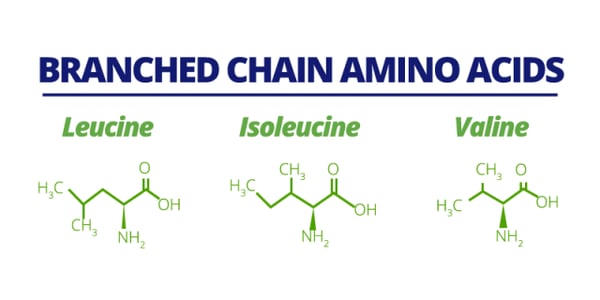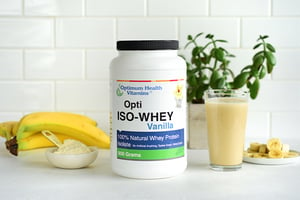What is whey protein?
First off, for many of you who currently use whey protein and are well aware of how supplementing your diet with this type of protein can produce amazing results, I want to point out that this article is more for the “beginner or novice” whey users.
Whey is the semi-clear liquid that the curds float in after milk has been curdled… (Ya know…”Little Miss Muffet…eating her curds and whey.”) What makes supplemental whey protein different and healthier than whole whey you may find in the grocery store? (Take note, this is very important) there is minimal sugar, whereas whole whey is mostly sugar. Obviously, if you are seeking a toned and lean body, sugar is a huge NO NO.
Muscle toning
Supplemental whey has most of the sugar removed, and consists of very short-chain proteins that your body doesn’t have to spend much time or energy digesting. The advantage of this is that when consumed within an hour or so after exercising, (i.e. when the “windows” to your muscles are open for replenishment), whey helps prevent your body from entering a catabolic state. Your muscles essentially “suck it up”…the protein goes directly in and helps with muscle repair.
In turn, replenishing your muscle gives your metabolism a boost in the fat-burning direction.
Then as you rest and repair, your muscles can enter an anabolic state. Before you say... “anabolic!??…huh?”, let’s be clear that being in an anabolic state is a good thing, simply put, it builds and mineralizes bones & muscles. When combined with exercise, whey protein encourages this process.
Aerobic and anaerobic exercise. What's the difference?

Also, as they pertain to the benefits of whey, I do need to make a clear distinction between aerobic and non-aerobic exercise. Both forms of exercise are good, and I believe everyone should do one or the other every day.
Aerobic, means to use oxygen. This is primarily achieved by doing exercises like walking, swimming or cycling. Anaerobic, means limited oxygen. Typical exercises that fall into this category include intense weight training, push ups, and resistance band work, where the “burn” is achieved.
In order for whey protein to produce results you will notice in your muscles, you will need to include multiple anaerobic exercise sessions each week. This type of exercise breaks down muscle fibers, and as mentioned, whey helps to repair them. Over time, you will produce stronger and leaner muscles.
For those of you fearful of 'bulking' up from anaerobic exercise, have no fear...think of whey protein more as food (as it is). The calories per scoop of whey protein are approximately 69. A very small addition to your diet.
What are typical results of using whey and anaerobic exercise?
Toned muscles, better skin elasticity, better digestion, better brain function, increased libido, better immune function and lower body fat levels. Not too shabby! The list is longer, but the ones I mentioned are noticeable, typically in a short period of time. 30 days or so.
How is Whey Protein different than other proteins?
 Good question…by volume, a huge percentage of the whey protein in a container is BCAA (branch chain amino acids). About 50%. Why is this good you ask… because approximately two thirds of your muscle is made up of BCAA amino acids, and your muscles can use them directly as fuel. Like I mentioned prior, if whey is consumed fairly soon after your workout (this is called the anabolic time frame) there is a much better chance that the whey and BCAA’s will go directly to your muscles and you will get the effects you are wanting.
Good question…by volume, a huge percentage of the whey protein in a container is BCAA (branch chain amino acids). About 50%. Why is this good you ask… because approximately two thirds of your muscle is made up of BCAA amino acids, and your muscles can use them directly as fuel. Like I mentioned prior, if whey is consumed fairly soon after your workout (this is called the anabolic time frame) there is a much better chance that the whey and BCAA’s will go directly to your muscles and you will get the effects you are wanting.
What type of whey protein should I use?
This is up for debate. All whey protein that is manufactured by reputable brands are good choices. There is ongoing debate as to whether “whey isolate” is better than “whey concentrate” (these are primarily the two types available to purchase).
Isolate has a somewhat higher protein content and is slightly more expensive. Concentrate, on the other hand, contains more milk sugar. Both are solid choices, but in my opinion, I would go for the isolate form.
Two primary things you will want to read on the nutrition panel are how much sugar is in each serving and how much protein is in each serving. Typically, a scoop of whey protein will have approximately 1.5 – 2 grams of sugar and 14-16 grams of protein.
If you are thinking of whey as food, a small chicken breast would contain about the equivalent amount of protein per scoop.
 My personal preference goes to whey isolate. I have a bit of a sensitive tummy, and in my personal experience, the isolate form sits well and minimal digestive issues happen. A solid choice is Opti ISO WHEY, we have sold if for years, it's both a staff and customer favourite.
My personal preference goes to whey isolate. I have a bit of a sensitive tummy, and in my personal experience, the isolate form sits well and minimal digestive issues happen. A solid choice is Opti ISO WHEY, we have sold if for years, it's both a staff and customer favourite.
Also, I would recommend avoiding supplements with artificial flavours. The big one to avoid is Aspartame. I won’t get into the negatives of this sweetener here, but there is more and more evidence suggesting to just leaving this one alone.
So let’s recap and add a suggestion…
Whey protein is NOT just for athletes. It is essentially just predigested dairy protein that has minimal sugar. When used after exercise (whether it’s walking or lifting weights), it can help substantially with the recovery process. When recovery is capitalized on, better muscle tone will come to fruition, less body-fat will accumulate around your midsection and you will have better energy levels. What’s not to like?
My suggestion is, if you haven’t tried whey protein before, get yourself a container! Start with half a scoop in water and drink it after you exercise on exercise days. On off days, have it in a shake with breakfast.
After a week of this, graduate to a full scoop. Follow this regime with a calorie correct diet for 30 days. I’m predicting, you’ll be looking better and feeling healthier as well!
Take care!
Graham
Optimum Health Staff Contributor

Disclaimer: The above information is provided for informational purposes only and is not intended to replace the advice of your physician.


